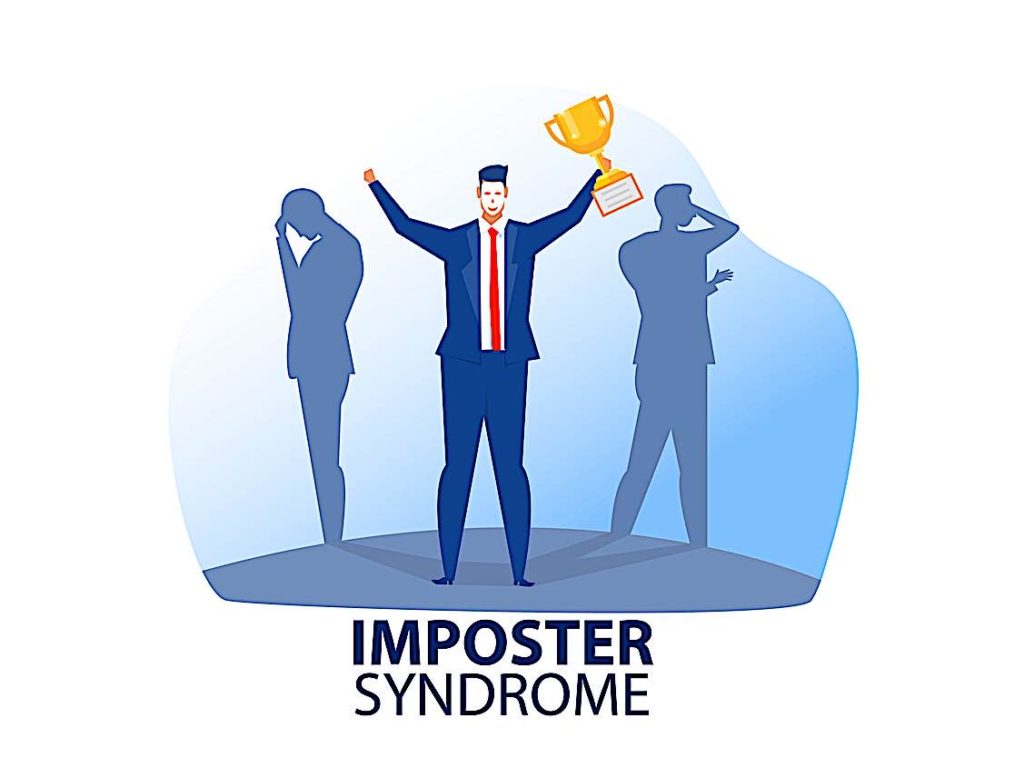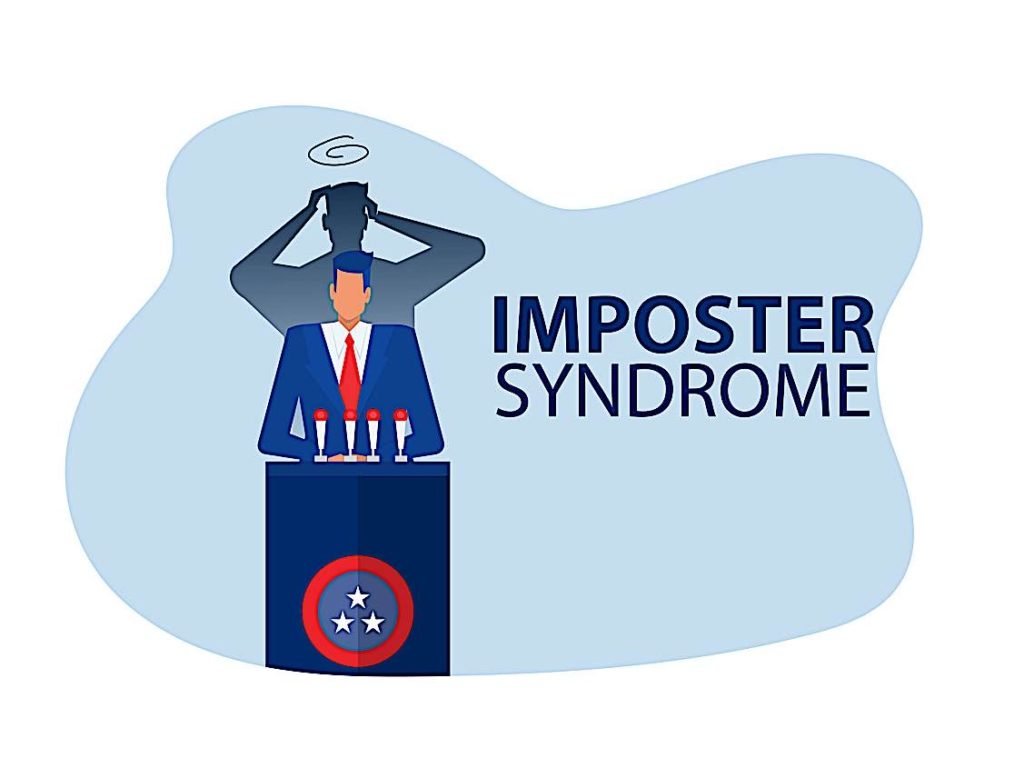
HR Management: Imposter Syndrome, its impact on your team, and what you can do about it
In recent years, it seems that everybody is talking about imposter syndrome and how it shows up in their work and personal lives.
But what is it, really? And how can HR help to manage it?
What is imposter syndrome?
Imposter syndrome is a psychological phenomenon in which individuals doubt their accomplishments and feel like frauds despite evidence to the contrary. In other words, it is that little voice in your head that tells you you’re not good enough, no matter how much success you’ve achieved.
Imposter syndrome can make people feel like outsiders, wear down their confidence, and stop them from putting their best foot forward.

While this syndrome is not an official diagnosis, it is relatively common and can be particularly damaging in the workplace, leading to a host of other problems.
A new survey by HR Reporter [1] that surveyed 2,500 workers in the UK has found that nearly 3 in 5 employees suffer from imposter syndrome, a massive 58 percent.
The split by age group and other demographics can vary enormously.
- For senior managers, who are placed in a position of authority, the survey found that imposter syndrome showed up for one in five, with respondents admitting that they always or very frequently feel like a fraud. This will likely make them feel that they don’t belong in their role and stop them from asserting themselves.
- It also found that young workers (between 25 and 39 years old) were much more likely to experience this phenomenon, with a whopping 27 percent admitting they suffered from it. This is significantly higher than senior workers (above 65), where only 3 percent answered positively, and can prevent the junior workers from seeking opportunities and promotions, affecting their career development.
- The split by gender also shows differences, with 21 percent of women reporting imposter syndrome versus 12 percent of men. But transgender respondents are a group that is particularly affected, as 64 percent reported feeling imposter syndrome.
- Do you have a question? Ask the experts at Pivotal HR Management Solutions>>
What are the effects of imposter syndrome?
While imposter syndrome is something that individuals experience, this self-doubt can have a ripple effect on those around them and, more broadly, in the workplace.
The surveys showed that employers whose workers suffered from frequent imposter syndrome faced challenges both in terms of productivity and employee management.
These were some of the difficulties they found:
- higher levels of procrastination (63 percent)
- productivity losses (41 percent)
- longer working hours (57 percent)
- higher levels of employee turnover (44 percent)
- avoiding applying for internal promotions (39 percent)

Suffering in silence
Despite how widespread imposter syndrome is, the HR Reporter survey found that a whopping 94 percent of workers haven’t discussed their feelings around it at work, and they suffer it in silence.
Some of the worries that employees have that stop them from discussing it with others include:
- the fear of being seen as less capable because of it (64 percent)
- being embarrassed (52 percent)
- concern that it won’t be taken seriously (33 percent)
- the worry that their manager would tell other people in the organization (29 percent)
It’s unfortunate that employees don’t share their experiences with imposter syndrome, as having a more honest discussion can reduce the shame and stigma associated with the feelings of imposter syndrome.
This is where HR management can help, building a more open environment where people are encouraged to talk about their struggles so that they feel less alone and feel supported.
What can HR managers do to combat it?
HR managers play a crucial role in creating an environment where employees feel supported and valued. But when imposter syndrome is present, it can undermine this effort if it’s not tackled.
HR management can set the tone for the discussions around imposter syndrome and help to reduce the stigma associated with it. They can also provide resources and support for employees struggling with it.
Some of the things that HR management can do to combat imposter syndrome are:
- Encourage employees to talk about it. This can be done through open discussions, surveys, or focus groups.
- Provide resources. There are many books, articles, and websites that can provide helpful information on imposter syndrome, or HR management can deliver in-person training on the topic.
- Create a support network for employees. This can be done through one-on-one coaching, mentoring programs, or workshops. HR can connect employees struggling with imposter syndrome with a mentor or coach who can help, potentially a more senior employee in the organization.
An action plan for imposter syndrome
When coming up with an action plan to tackle imposter syndrome, it’s essential to make sure that HR pays particular attention to the needs of employees who are more likely to suffer from it. This includes transgender women employees, women, and more junior employees.
As the survey found, imposter syndrome disproportionately affects younger workers. This suggests that imposter syndrome is something that needs to be addressed early on in an individual’s career.
Imposter syndrome can be crippling for the employee and prevents them from giving their best work and showing their full potential. When that happens, the organization is simply not making the most out of their talent; they’re likely to lose out on productivity and suffer from increased attrition.
And beyond imposter syndrome, there’s also a worrying growing trend of mental health struggles in the workplace. Another HR Reporter survey [2] of over 32,000 workers from 17 countries found that more than half (53 percent) of workers believe their work is suffering due to poor mental health.
One thing is clear; tackling imposter syndrome and providing overall mental health resources can ensure that employees feel supported in the workplace, reducing stress and anxiety levels, and it’s crucial to ensure that all employees have the capacity to thrive in the workplace.
Only when employees are set up for success can the organization be sure that they are getting the most out of their talent, setting them up to win, and putting the organization on the road to success.
Do you need help from an HR Management expert? Ask the experts at Pivotal HR Management Solutions:
Contact Pivotal
Sources
[1] HR Reporter survey on imposter syndrome
[2] HR Reporter surveys on mental health


 Our HR solutions experts can recommend the right mix of HR outsourced services to make your entry into Canada easier.
Our HR solutions experts can recommend the right mix of HR outsourced services to make your entry into Canada easier.  Pivotal Employment Management Services co-hires your workforce, simplifying entry of your business in Canada.
Pivotal Employment Management Services co-hires your workforce, simplifying entry of your business in Canada. 















